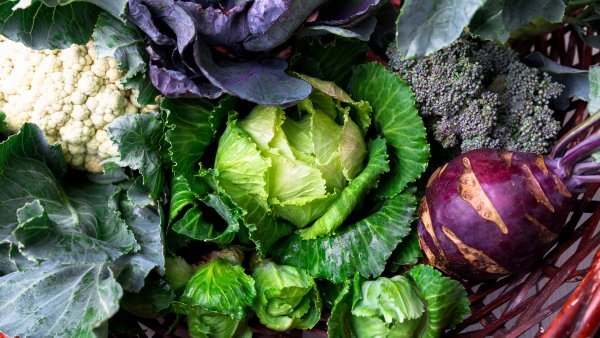This article lists Vegetables To Have If You Have Thyroid and majorly focuses on managing the symptoms of thyroid
In addition to medications and other procedures, the food you eat can affect thyroid disorders such as hyperthyroidism and hypothyroidism. So if you have thyroid problems or a thyroid imbalance, it’s important to identify foods that support your thyroid function. It’s also a good idea to know which foods can harm your thyroid and what causes thyroid problems so you don’t unintentionally make thyroid conditions worse.
The thyroid controls the body’s metabolic processes. It produces thyroid hormones that regulate many biological functions and ensure good health. When the thyroid becomes sluggish or overactive, it can cause many problems. One of the best ways to ensure optimal thyroid function is through diet.
Vegetables to have:
Cruciferous vegetables such as kale, Brussels sprouts, radishes, and cauliflower. Also known as goitrogenic foods (foods that can help reduce thyroid hormone production), they can inhibit the thyroid’s ability to process iodine and produce thyroid hormone, potentially relieving symptoms of hyperthyroidism. However, you should be careful with these vegetables if you have an autoimmune condition like Graves’ disease. So before making these foods a larger part of your diet, talk to your doctor first.
-
Kale
Kale is a cruciferous vegetable related to other well-known healthy vegetables like broccoli, Brussels sprouts, and cabbage. Cruciferous vegetables are unique in that they are rich in healthy sulfur-containing compounds known as glucosinolates. After cooking, cruciferous vegetables lose up to 80% of their goitrogenic (iodine-interfering) chemicals, so they no longer block iodine uptake. Studies show that steaming for 3 minutes ensures the bioavailability of the beneficial nutrients we crave from these vegetables, but destroys the goitrogenic effects. Blanching (quickly cooking the vegetables in boiling water) is more effective because the glucosinolates float on the water. I recommend the Cruciferous Vegetables cooked daily, with the occasional weekly raw one.
2. Brussels Sprouts
Brussels sprouts contain several classes of goitrogens, which suppress the production of thyroid hormones. People with low production of thyroid hormones are at risk for thyroid disorders, including hypothyroidism. Goitrogens can be generated enzymatically from the hydrolysis of some glucosinolates, sulfur-rich plant metabolites found in Brussels sprouts and other Brassica vegetables. However, many nutritionists believe that processing and cooking inactivate these goitrogens.
3. Radishes
Radishes may not be the most popular vegetable in your garden, but they are one of the healthiest. These underrated roots are packed with nutrients. They can even help or prevent some health problems. Radishes are not well studied for conventional medical use. Most studies have been conducted on animals, not humans. Despite this, radishes have been used as a folk remedy for centuries. They are used in Ayurveda and Traditional Chinese Medicine to treat many conditions, including fever, sore throat, gallbladder disease, and inflammation.
4. Cauliflower
Cauliflower is high in fiber, with nearly 3 grams of fiber in 1 cup. Eating high-fiber foods restores gut health and reduces inflammation. Fiber improves digestion and strengthens your immune system. Another symptom that is common in people with a thyroid is constipation. Cauliflower and spinach can help prevent constipation, inflammatory bowel disease, and other chronic conditions.









